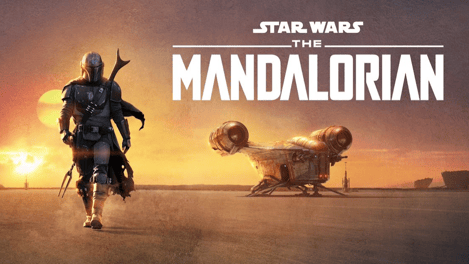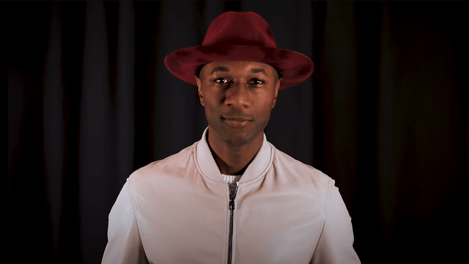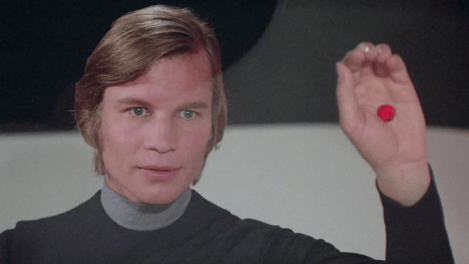
Respeecher's Voice Synthesis Restores Communication for Friedreich's Ataxia Patient
Speech is a uniquely human ability that we often take for granted. When delivering healthcare solutions for individuals with speech disabilities, we meet a lot of extraordinary people who have had to re-evaluate how they live their lives without the ability to speak.
This time, we met Joseph Boon, a New Zealander. He was diagnosed with Friedreich's Ataxia along with his brother and sister. Despite the very unpleasant prognosis, Joseph and his family wanted to find ways to improve their quality of life. After some searching, Joseph came upon Respeecher. And that’s when our collaboration began.
The Challenge
Friedreich's Ataxia is a rare genetic disorder that affects some of the body's nerves. Symptoms often begin in late childhood and can include trouble walking, fatigue, changes in sensation, and slowed speech. The symptoms of Friedreich's ataxia usually get worse as time passes. The disorder affects Joseph’s coordination, hearing, and speech.
Before turning to Respeecher, he used special technology to help him hear clearly. “Although my ears pick up sound well enough, the transmission of that audio information to my brain is like heavy traffic going over a bridge in a hurricane. It takes time and effort to wade through the mess of sound and perceive what I want or need. Of course, this applies to the sound I make too”, explains Joseph.
Due to hearing issues, he can’t perceive his voice clearly. Many years ago he started using a small directional microphone connected to headphones to follow conversations in noisy environments and to hear his own voice more clearly.
Joseph’s speech began to noticeably degrade a decade ago. Today, he can still be understood but he cannot sing in tune, or hold a tune at all.
“I work hard to maintain the ability to communicate because it’s more important to me than almost anything else, even the ability to walk. But, just like walking, my voice will keep being challenged until I run out of ways to adapt. That is what brought me to Respeecher.”
Like other patients that lose their ability to speak, Joseph decided to try voice cloning technologies and figure out which ones work best for him. However, he was always concerned that it means that he has to use someone else’s voice. With Respeecher he finally found a chance to recreate his own voice.

The Solution
In order to compile an accurate model of Joseph’s voice, we usually require around 30 minutes of recorded speech. However, in the case of patients, we ask them to provide any samples they already had prior to the deterioration of their speech. Luckily, Joseph was a presenter at a local radio station and had some recordings of himself back when he was live on the air. We then used these recordings to clone his voice.
Once we had the samples, we began working on creating an AI model of Joseph’s target voice.
The Result
As a result, Joseph was presented with a voice model that was indistinguishable from the speech he had before his original voice began to fade. He uses this model for his vocal exercises.
“I recorded an old school friend and converted his voice to mine. I got him to read a selection of literature I like, but find it a challenge to read aloud myself. He is a trained actor, his accent is close to mine, and I like the rhythm of his speech. The result is me. Well, what I would sound like without Friedrich’s Ataxia. I listen, and recite the same words, trying to match the rhythm, pace, pitch etc. I do this repeatedly.”, says Joseph.
Such training is helping Joseph maintain his voice. “Doing this through Respeecher I am trying to sound more like myself rather than trying to sound like my friend, or someone else.”, he adds.
So currently, Joseph is using our Text-to-speech solution as Speech-to-speech can't help him fix his speech impairments. However, he is going to leverage STS as well, for his creative projects with the help of voice actors.
Having this tool is a significant emotional boost for Joseph as it allows him to reclaim his vocal creativity. Today, he is part of a creative community and is planning to record voiceovers for his radio screenplays using scripts he’s written.
We have added Joseph’s voice to the Respeecher Voice Marketplace. In this way, Joseph’s voice will be able to take on many incarnations, giving life to a number of different new projects.
As technology develops, Joseph hopes to use his voice model for direct communication.
Respeecher has created voice solutions for different healthcare cases, such as giving voice to Michael York and helping patients that went through larynx removal. Aside from laryngeal cancer, other disorders that could be candidates for Respeecher’s voice revival include Parkinson’s disease, amyotrophic lateral sclerosis, multiple sclerosis, vocal fold paralysis, pharyngeal cancer, and dysarthria.
We are honored to be able to work with such strong people like Joseph. Thanks to people like him, we are able to continue improving our technology and help more people who are suffering from voice disabilities.
FAQ
Voice synthesis technology is a process of generating human-like speech from text or audio samples by artificial intelligence (AI). This technology is used in AI-driven speech therapy tools to create more natural voices for individuals with speech impairments, helping them communicate more effectively and regain their ability to speak.
AI voice cloning can empower those who have any kind of speech impairment to restore their original voice by using audio samples from before their speech started degenerating. It will also enable personalized voice cloning for medical applications so the patients can speak in a voice more natural to themselves and closer to their original tone, thereby sustaining their identity and confidence.
Yes, Respeecher voice synthesis can recreate a voice of a person suffering from neurodegenerative diseases like Friedreich's Ataxia. Using the previous voice recordings and speech restoration solutions, it creates an AI model that sounds pretty close to their original voice. Thus, it offers a more familiar voice and enables proper communication.
Respeecher voice synthesis is one of a kind because of the personality and precision it offers in generating voice models. This technology, through AI, reproduces the voice of a patient even when it has already degenerated; this ensures very natural speech for clarity, articulation, and emotional expression of speech, enhancing communication for ataxia patients.
AI voice cloning benefits Friedreich's Ataxia patients by allowing them to preserve their original voice despite speech degradation. With Respeecher’s voice synthesis technology, patients like Joseph Boon can regenerate their voice for personal use, emotional support, and even creative projects, helping them maintain their identity and communication abilities.
Key outcomes of Respeecher’s collaboration with Joseph Boon include the creation of an AI voice cloning model that replicates his pre-disease voice. This model has allowed Joseph to practice speech exercises and participate in creative projects like radio voiceovers. It has also provided him with a sense of emotional support and creative freedom improving quality of life with AI voice technology.
Glossary
Voice synthesis
AI voice cloning
Speech restoration solutions
AI Voice Cloning for Speech Restoration
in Neurodegenerative Diseases
Respeecher's voice synthesis technology empowers individuals with speech impairments, such as those with Friedreich's Ataxia, by preserving their natural voices. AI-driven speech therapy tools help restore speech and improve quality of life through personalized voice cloning for medical applications.
-
The Challenge of Friedreich's Ataxia
Friedreich's ataxia is a rare genetic disorder that causes progressive damage to the nervous system responsible for coordination, balance and muscle movement. Joseph Boon, who suffers from this disease, gradually lost his fluency of speech. He finally found some speech restoration solutions that helped him regain his voice so he could communicate better.
-
Personalized Voice Cloning
Respeecher's AI voice cloning technology offered Joseph a breakthrough. By using archived recordings from his radio career, Respeecher created a voice model that closely resembled his original speech. This solution allows Joseph to practice his vocal exercises and communicate more effectively despite his condition.
-
Enhanced Communication and
Emotional Well-BeingThe voice synthesis technology has been an emotional boost for Joseph, enabling him to engage in creative projects like voiceovers. As Respeecher’s technology evolves, Joseph hopes to use his voice model for direct communication, further enhancing his life and preserving his voice for the future.







